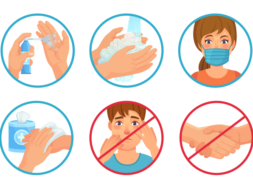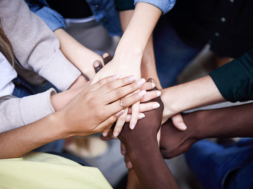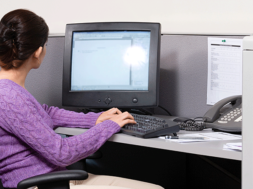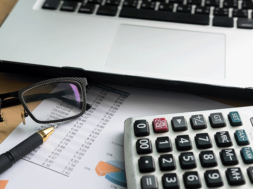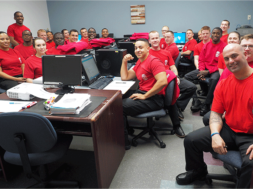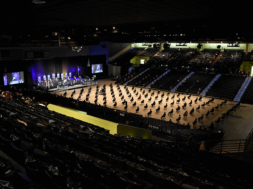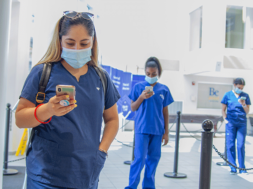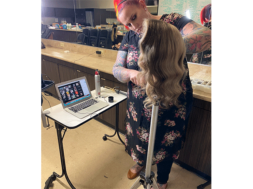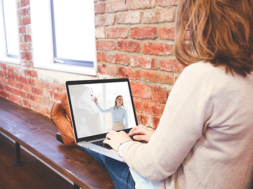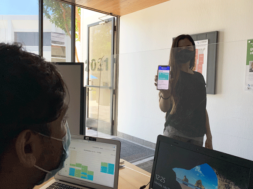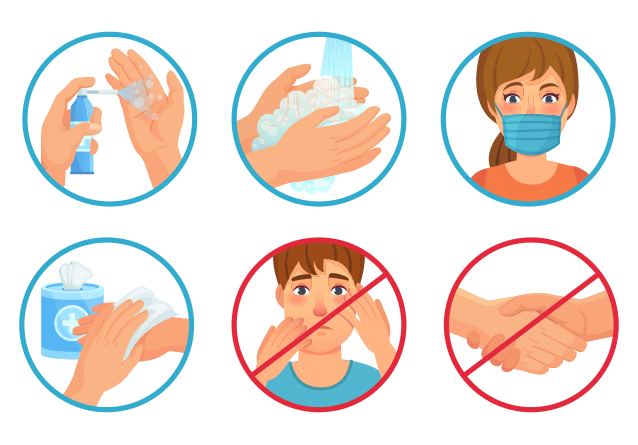
Southeastern College and Southeastern Institute First Phase of Reopening
Interview with Robert Keiser the Executive Director of Southeastern College and Southeastern Institute
Below is our interview with Robert Keiser the Executive Director of Southeastern College and Southeastern Institute. This interview took place at the end of May 2020. Southeastern is a five campus, ACCSC accredited, institution located in South Florida, South Carolina, and North Carolina. Southeastern educates roughly 1,300 students in allied health, information technology, and business fields.
CER: What stage in the reopening process are you currently in?
Robert Keiser: We are in the first phase of our re-opening process which is a very limited opening with the support of distance education. This involves voluntary attendance on campus for all stakeholders.
CER: What guidelines have you put in place to safely reopen?
Keiser:
Once we begin the re-opening process campuses will follow these requirements:
- Schedule cleaning vendors to be on-site to clean and sanitize labs before and between uses.
- Establish a system of providing PPE equipment to staff, faculty, and students.
- Use a single entrance to the campus to control traffic flow (can use a separate exit if the door only opens from the inside).
- Every individual who is to be on campus must have their temperature checked. Two thermometers per campus will be provided.
- Any individual coming to campus must demonstrate that they have the necessary PPE.
- Establish a check-in procedure. Mark every individual whether it be staff, administration, or students to determine if they had their temperature checked and have appropriate PPE. This is done every day.
- If a student/staff/faculty member touches anything they give to the other, the person receiving it is to wash his/her hands immediately thereafter with soap and water for at least 20 seconds.
- Sharing of pens/pencils and other writing instruments is prohibited.
- Campus thermometers should be sanitized after each use if it touches someone or if it exchanges hands (i.e., if someone else begins administering temperature checks).
- Continue remote punching to avoid sanitation concerns related to the punch-in clock.
- Additional hand-sanitizer sanitation stations were added, and existing ones are to be re-stocked.
- Access to vending machines restricted.
- Furniture and lounging areas will be restricted to avoid congregating
- Directional arrows and floor markers will be used to indicate appropriate social distancing standards
- Staffing at the campus will be highly reduced for the foreseeable future. Only necessary employees will be granted entry
- All meetings for students and faculty will occur remotely
Check-In Process:
- All employees and students must sign in/sign out daily (keep and file these sign-in sheets)
- All employees and students must have temperature taken upon arrival
- All employees and students must answer a series of questions related to any symptoms they may be experiencing or have experienced, contact with anyone who was experiencing symptoms that could be associated with COVID-19, or contact with anyone diagnosed with COVID-19.
- If the answer is No to all questions, and if the temperature is appropriate for students, staff, or faculty, permission is granted for that day.
- If the answer to any of the questions is Yes, or if they cannot pass the temperature threshold, the individual is not permitted on campus.
Lab Procedures:
- When safe and appropriate Southeastern will focus on helping students acquire lab hours that have been impossible or restricted to being conducted online.
- We will emphasize that the use of the labs is 100% voluntary.
- Groups should be limited to no more than nine students at one time. Five students are strongly preferred, and quantity may have to be reduced if classroom size is a concern.
- Schedules for lab hours should be staggered to provision for cleaning/sanitizing between uses
- Labs must be cleaned and sanitized between uses by your current cleaning vendors and day porters (secure day porters if you do not already have them)
- Social distancing guidelines should be maintained throughout the campus, in parking lots, and on sidewalks adjacent to campus grounds.
- PPEs shall always be worn during lab/simulation
CER: Will any of your departments continue to operate remotely during the initial reopening?
Keiser: Yes, all departments will be encouraged to operate remotely to the fullest extent possible. Our goal is to reduce the volume of individuals on campus in order to maintain social distancing, compliance with various Executive Orders, and to promote the safest and healthiest campus environment possible.
CER: What is your plan for social distancing at your school?
Keiser: Lecture and classes that can be held remotely will continue to be held remotely regardless of a change in re-opening guidance. Lab classes, that must be held on-ground, will be conducted with reduced cohort sizes. Areas that promote congregating such as vending machines, lunch areas, lobbies, rest areas, etc., will be roped off. Markers will be utilized on campus to indicate proper distancing. All meetings will be conducted off-campus, staff’s desks will be distanced and outdoor areas will be opened.
CER: How will you get your students/staff to implement new safety precautions?
Keiser: This is not a huge concern as all staff and students have been, to this point, incredibly understanding and flexible. However, strict enforcement of policies is necessary in times of crisis. This a public health concern and we cannot put our Southeastern family or the greater community at risk.
CER: Will you be checking students and staff for COVID-19 symptoms?
Keiser: Yes, via questions and temperature checking.
CER: What are you doing for students/staff experiencing mental health issues?
Keiser: Southeastern has partnered with META teletherapy to provide the Southeastern family unrivaled access to mental health services.
CER: Are you doing anything for student parents who do not have child care?
Keiser: Our biggest service for student parents is our policy of absolute flexibility. We are working with every student on a case-by-case basis to be as supportive as possible during this time of unprecedented tribulation.
CER: Do you have students/staff that do not want to return at this time? How are you handling these requests?
Keiser: I am sure we do, but that hasn’t been a concern as all participation on campus has been completely voluntary. Should these situations come up in the future the way we will handle the concern will depend largely on the status of the Executive Orders. In either case, we strive to work with everyone individually to be as supportive and flexible as possible.
CER: Are you worried about liability issues? If so, have you put anything in place to lessen the issues.
Keiser: Absolutely, although I am more concerned about the health and well-being of our institutional family. Our best protection is operating with an abundance of caution and care. We are administering and enforcing health, social distancing, anti-discrimination, protocols that are well above what is required of us not only because it is our best shield against liability, but because it is the right thing to do. Additionally, although we are fortunate that we have an excellent LMS, Blackboard, and strong experience with distance education the majority of our students were disrupted by COVID-19 is because they are ground students. Therefore, we are doing everything we can to stay in contact and be supportive of our students as they take their classes online.
CER: Have you changed your marketing strategies for enrolling new students during and/or after the pandemic?
Keiser: Yes, we have focused on our online offerings and have reallocated dollars away from terrestrial marketing such as billboards, bus wraps, and radio to digital marketing such as more internet and tv.
CER: What has been your biggest challenge with reopening?
Keiser: The uncertainty and fluidity of the time period and developments. Every day is a different story.
CER: Have you had any issues regarding accreditation or state regulatory bodies?
Keiser: Not really. Most regulatory bodies have been flexible and understanding. The influx of reporting was difficult and some of the programmatic accreditors were less flexible than others.
CER: Have you received HEERF funds, how did you decide to distribute them?
Keiser: We have.
- We designed a process with five aims in mind:
- To expeditiously develop and implement a plan to distribute CARES Act funds to Southeastern College and Institute students.
- To adhere to CARES Act requirements and ED interpretive guidance in distributing
- To distribute funds in a manner that best ensures student support in light of COVID-19 and economic challenges.
- To create a process for awarding funds that is defensible, replicable, and equitable – a process that will stand up to predictable future scrutiny (auditors, legislators, media, etc.).
- To utilize existing processes and automate the awarding, distribution, and tracking process to the greatest degree possible.
Full-time and part-time undergraduate Southeastern Institute students enrolled on March 13, 2020, are eligible to receive a one-time grant through the CARES Act initiative. Priority for Initial Grant aid is placed on students with the highest economic need as indicated by their EFC. Students with an EFC of greater than $15,000 will not receive an Initial Grant; they may, however, apply for assistance under Emergency Grants I and II.
Additionally, currently enrolled and students enrolling prior to Emergency Grant application deadlines may apply for additional emergency funding for financial emergencies related to the COVID-19 economic crisis.
CARES Act grants will be issued in three phases.
Phase I – Initial Grants. Initial grants will be automatically awarded to eligible students and delivered to students by May 25, 2020. No application is required to receive grants under Phase I.
Phase II – Emergency Grants. The second round of grants will be awarded based on an application demonstrating financial emergencies related to COVID-19. Emergency Grants require an application. The application window will be posted on the website once the dates are determined students should check back for details.
Phase III – Emergency Grants II. The third and final round of grants will also be awarded based on an application demonstrating financial emergencies related to COVID-19. Emergency Grants II requires an application. The application window will be posted on this page once the dates are determined students should check back for details
CER: What is one thing you learned that will help you in the future?
Keiser: We learned we need to increase our portfolio of online programs, and although it came at great cost we learned we can transition online and operate relatively effectively,
CER: Are there ideas you put in place during the pandemic that you will continue afterward?
Keiser: We will increase our online program portfolio, we will probably allow more remote workers, we will consider our real-estate footprint, and we may allow more flexible scheduling.
CER: What new education technology helped you move to remote learning? Will you continue to use it post-pandemic?
Keiser: Microsoft Teams is probably the best and newest platform that helped us move to remote learning. It helped us create a virtual campus and remain in contact at all times. We will definitely use it going forward.
CER: What do you think career education will look like post-pandemic?
Keiser: It depends on the recovery. If there is a vaccine that is effective and COVID-19 can be treated more like seasonal flu I do not think career education will change too much. I do think many institutions will increase their online and especially their hybrid offerings. However, if the pandemic is re-occurring in equal or greater force, the sector will have many schools close especially the cosmetology, barber, and trade schools. The amount of online only institutions and consortium agreements will increase. Career education will have to pivot like every other industry; however, the need for the greatest change is in the state university system. On-campus-living and dormitories are especially problematic.
CER: What is a silver lining?
Keiser: In any situation, you are faced with challenges you learn the most. As institutional administrators and operators, we have all learned valuable lessons about future planning, crisis response, institutional limitations and strengths, and our personnel. These lessons can all be applied in the future. I also believe that due to changing economic dynamics as a result of COVID-19, career education should be poised for growth in the future.
CER: Is there anything you would like to add?
Keiser: In this time of unprecedented challenge, it is important for institutions to be aware that they are being judged. Those who do the right thing and take care of their stakeholders will benefit from the goodwill of showing leadership during a trying time. Those who fail to do the right thing or fall short of their obligation to take care of their stakeholders will and should be judged harshly. Whether positive or negative the impact to brand reputation is likely to be long-lasting.
